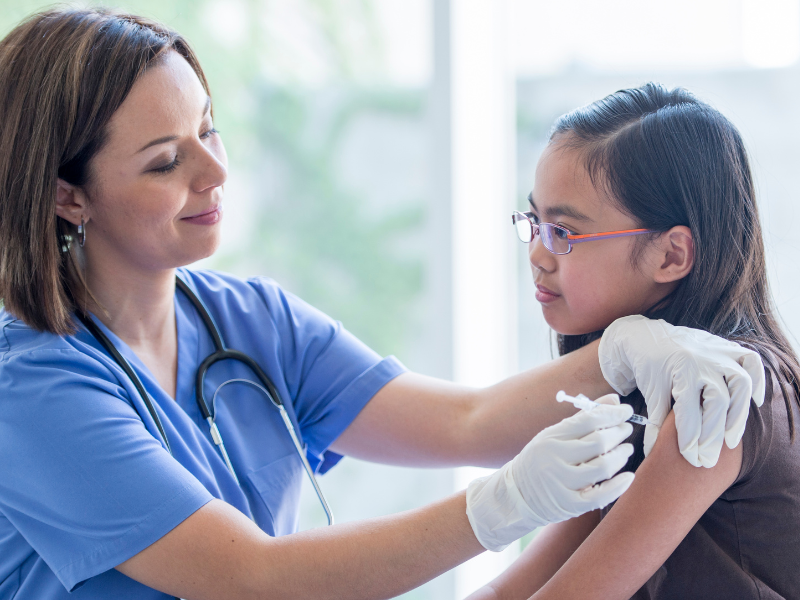5 things to understand about vaccines in Louisiana

A troubling trend is emerging in Louisiana as more parents request vaccination exemptions for children entering school.
In the 2022-23 school year, parents of new kindergartners opted their children out of vaccine requirements at double the rate they did in previous years, according to new CDC data.
Coupled with two recent documented cases of measles in the state and recent efforts by the state legislature to pass new bills aimed at weakening vaccine requirements, the potential for disease outbreaks in Louisiana is rising.
But how large is the risk? Which diseases are most problematic? And what do parents need to know about vaccines in general?
We reached out to Charles Stoecker, PhD, program director of the PhD program in the Department of Health Policy and Management at the Tulane School of Public Health and Tropical Medicine, to reach a better understanding of how critical the current situation with vaccinations in Louisiana actually is.
Here's what the community should know.
Are vaccines safe?
Yes. Vaccines have had some of the strictest scrutiny of any pharmaceutical over several generations. Millions of kids get vaccinated in the US each year without problems, and we are all safer for it.
What does the current state of vaccinations in Louisiana mean for the potential spread of disease?
Small changes in vaccination rate can cause big changes in disease. For a disease like measles, we want to see 95% coverage for herd immunity. The most recent data puts Louisiana kindergarteners at 92.2%.
An important thing to understand is that some schools or communities will be over the 95% threshold and protected, and some are going to be at higher risk where the coverage has dipped most. It’s not going to be constant from school to school.
For context, the 2019 measles outbreak in New York City happened when coverage dipped to 79% and hundreds got sick. Many had to go to the ICU and it was only through some heroic efforts that none of them died.
What is herd immunity and why is it important?
Before vaccines, kids were much less likely to make it out of childhood alive, and it is the immunity that vaccines provide that allows our kids to grow up. Vaccines do such a great job that we don’t think very much about how they make our kids’ lives different. Vaccines provide direct protection when your kid gets a shot, and indirect protection (a.k.a. herd immunity) when other kids are vaccinated and protect your kid.
Neither type of immunity is perfect, so double protection is best. And for kids (and adults) who can’t get vaccinated due to medical reasons, that herd immunity is their only defense.
Which vaccinations are the most important (or at least most pressing) ones in Louisiana right now?
Different vaccines have different degrees of protection. Somewhat counter-intuitively, it is most important to maintain high coverage levels for vaccines with less direct protection (again, to help herd immunity take effect).
Diseases that are easily passed among kids are also important for protection. Measles is one of the most common outbreaks we see when vaccination coverage levels slip at a school. Pertussis is another frequent outbreak.
What other things do you, as an expert in the field, wish people knew about vaccinations?
Vaccinations have been used as political tools, distorting their purpose and efficacy.
While Louisiana has had a pretty lax vaccine exemption system for decades, our vaccination rates compared to other states with permissive vaccine avoidance rules were decent.
But following the politicization of the COVID-19 vaccine, it was inevitable that we would see spillover hesitation to other long-standing childhood vaccines.
If vaccine coverage continues to decline, outbreaks are inevitable and children will be in greater danger of severe illness and mortality.
--
For more on this topic, you can listen to Charles Stoecker's interview with WWL.
